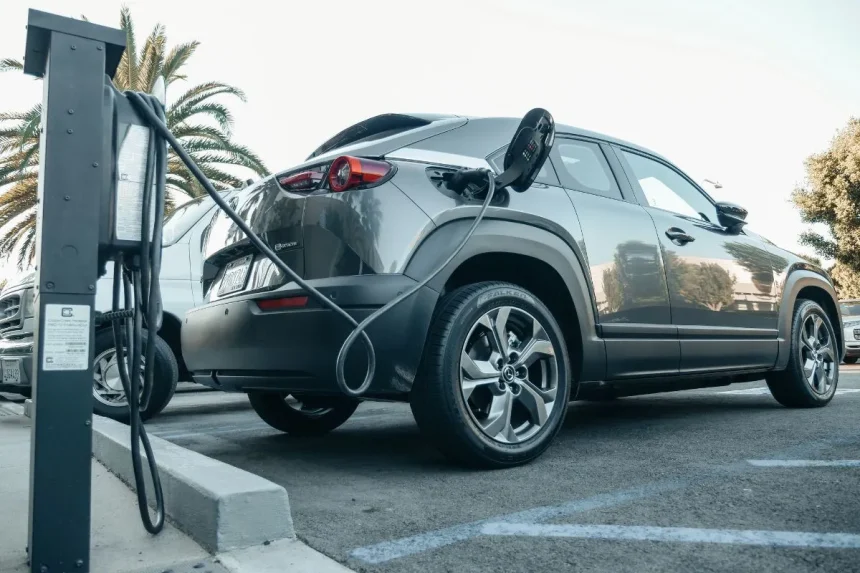Electric vehicles (EVs) are increasingly becoming a topic of discussion among potential car buyers. While the benefits of EVs, such as lower emissions and reduced running costs, are well known, there are still several arguments that make some people hesitant to make the switch. This article examines these concerns in detail, providing a balanced view of the pros and cons of owning an electric car.
The Initial Cost Barrier
Upfront Purchase Price: One of the most significant deterrents for potential EV buyers is the higher initial purchase price compared to internal combustion engine (ICE) vehicles. EVs generally cost more due to the expensive battery packs that power them. However, this gap is gradually closing. Government incentives, such as tax credits and rebates, help offset the initial cost. Moreover, as battery technology advances and economies of scale come into play, the prices of EVs are expected to continue falling.
Long-Term Savings: While the initial cost is higher, EV owners often enjoy lower long-term expenses. Electricity is generally cheaper than gasoline, and EVs have fewer moving parts, which translates to lower maintenance costs. Studies have shown that over the lifetime of the vehicle, the total cost of ownership for an EV can be lower than that of a comparable ICE vehicle.
Range Anxiety
Driving Range: Range anxiety, or the fear that an EV will run out of power before reaching its destination, is a common concern. Early EV models had limited ranges, often under 100 miles per charge. However, modern EVs have significantly improved in this area. Many new models offer ranges well over 200 miles, with some high-end models exceeding 300 miles on a single charge.
Charging Infrastructure: The availability of charging stations is another key factor in range anxiety. The article highlights that the infrastructure for EV charging is rapidly expanding. Public charging stations are becoming more common, and advancements in fast-charging technology mean that it’s possible to recharge an EV to 80% capacity in under an hour at many locations. Home charging stations also provide a convenient solution for daily commuting needs.
Environmental Impact
Emissions: While EVs are promoted as environmentally friendly, there are concerns about the carbon footprint associated with their production, particularly the batteries. Manufacturing EV batteries is energy-intensive and can involve significant emissions. However, multiple lifecycle analyses have shown that, over their entire lifespan, EVs have a lower carbon footprint than ICE vehicles. This is due to the higher efficiency of electric motors and the cleaner electricity grid.
Battery Disposal: The disposal of EV batteries poses environmental challenges. However, the industry is making strides in recycling technologies and second-life applications for used batteries. Recycling processes are being developed to recover valuable materials from old batteries, reducing the need for new raw materials and minimizing environmental impact.
Performance and Reliability
Driving Experience: EVs offer a different driving experience compared to ICE vehicles. Electric motors provide instant torque, resulting in rapid acceleration and a smoother, quieter ride. Many drivers find these attributes to be a significant improvement over traditional cars.
Reliability: The simplicity of EV powertrains can lead to greater reliability. With fewer moving parts and no need for oil changes, EVs tend to require less maintenance and experience fewer mechanical issues. This can translate into higher overall reliability and lower long-term maintenance costs.
Market and Technology Trends
Technological Advancements: The pace of technological advancement in the EV industry is rapid. Battery technology is improving, leading to longer ranges and faster charging times. New materials and designs are making batteries more efficient and durable. Additionally, software updates and advancements in autonomous driving technology are enhancing the overall EV experience.
Market Growth: The market for EVs is expanding quickly. Major automakers are committing significant resources to electrification, with many planning to phase out ICE vehicles entirely within the next decade or two. This growing market share reflects increasing consumer acceptance and the broad appeal of EVs.
Conclusion
While there are valid concerns about the initial cost, range anxiety, environmental impact, and reliability of electric vehicles, the overall trend is one of rapid improvement and growing viability. The higher upfront costs are often offset by long-term savings, and advancements in battery technology and charging infrastructure are addressing range and convenience issues. Environmental impacts are being mitigated through better manufacturing practices and recycling technologies.
As the market for EVs continues to grow, driven by both technological advancements and shifting consumer preferences, many of the current barriers to adoption are likely to diminish. For potential car buyers weighing the decision, it’s clear that electric vehicles are becoming an increasingly practical and attractive option. With ongoing developments in the industry, the arguments against EVs are steadily being addressed, making them a compelling choice for the future.
Get more info: https://www.timelinetale.com/


